On 28 April 1852 the first municipal electric fire alarm system using call boxes with automatic signaling to indicate the location of a fire was placed into operation in Boston. Invented by William Channing and Moses Farmer, this system was highly successful in reducing property loss and deaths due to fire and was subsequently adopted throughout the United States and in Canada.
Boston
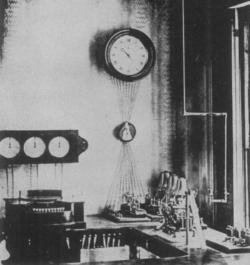
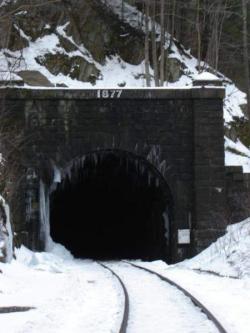
When first proposed in 1819, the Hoosac Tunnel seemed so logical. It would provide an efficient and direct route for the Boston and Albany Railroad, whose pathway meandered 20 miles along precipitous grades. Early proponents, however, could not have imagined that blasting a 4.75 mile tunnel through the Hoosac Mountain would require over 20 years of labor. The project took so long to complete that it was commonly referred to as "The Great Bore."
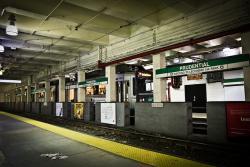
By the 1890s, the transportation infrastructure of downtown Boston - a maze of narrow, winding streets laid out, in some cases, along Colonial cow paths - proved completely inadequate for the needs of a modern, bustling metropolis. Tremont Street, the city's main thoroughfare, was regularly subject to gridlock from a convergence of foot traffic, horse-drawn conveyances, trolley lines, and electric streetcars. To rectify the problem, the Boston Transit Commission, with Howard A. Carson as chief engineer, was created in 1894 to study remedies.
Innovations
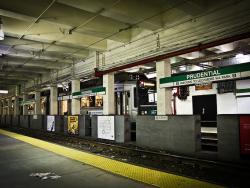
By the 1890s, the transportation infrastructure of downtown Boston - a maze of narrow, winding streets laid out, in some cases, along Colonial cow paths - proved completely inadequate for the needs of a modern, bustling metropolis. Tremont Street, the city's main thoroughfare, was regularly…
Read More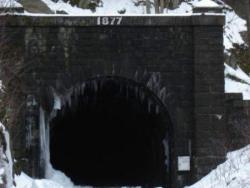
When first proposed in 1819, the Hoosac Tunnel seemed so logical. It would provide an efficient and direct route for the Boston and Albany Railroad, whose pathway meandered 20 miles along precipitous grades. Early proponents, however, could not have imagined that blasting a 4.75 mile tunnel…
Read More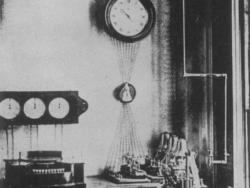
On 28 April 1852 the first municipal electric fire alarm system using call boxes with automatic signaling to indicate the location of a fire was placed into operation in Boston. Invented by William Channing and Moses Farmer, this system was highly successful in reducing property loss and deaths…
Read More

